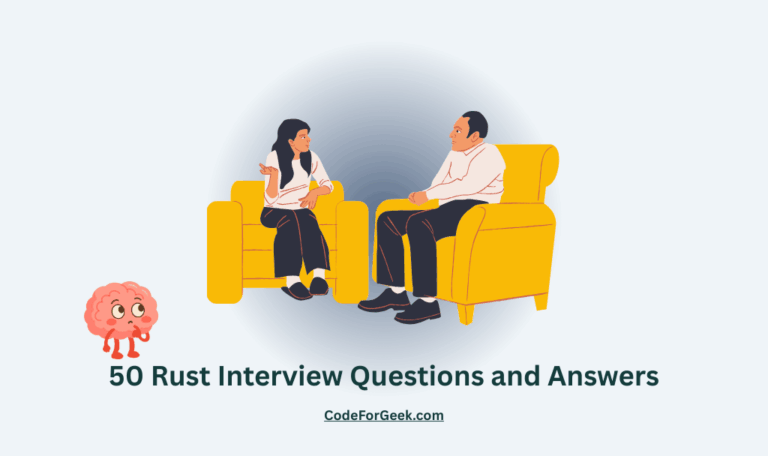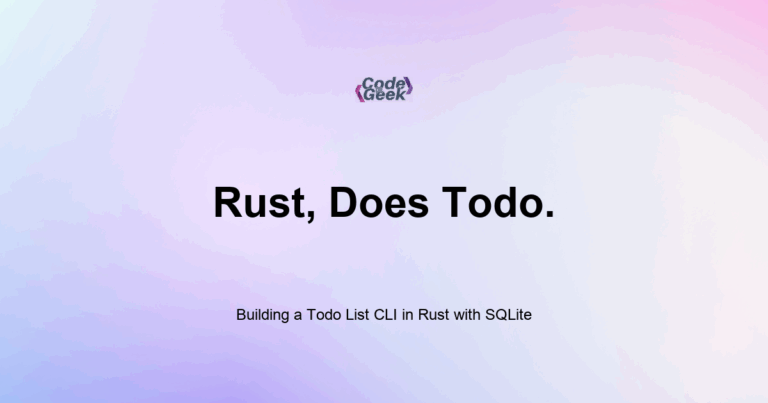New to Rust? Grab our free Rust for Beginners eBook Get it free →
Option and Result Combinators in Rust

Rust provides powerful combinator methods like map, and_then, unwrap_or, and others to simplify how you work with Option and Result. These methods let you transform values, chain operations, and provide fallbacks, without writing repetitive match blocks.
At first, I handled Option and Result types using match statements everywhere. That worked, but it quickly became repetitive and cluttered. Once I discovered combinators, I started writing cleaner and more expressive code especially when chaining logic or applying fallbacks. Combinators let you treat errors and optional values like data you can transform and pass through a pipeline.
In this post, you will learn the most useful combinators, how to use them with Option and Result, and when they help you write safer and shorter Rust code.
Why Use Combinators?
Combinators give you methods to work with Option or Result directly without manual match handling.
Benefits:
- Less boilerplate
- More readable
- Easier to chain operations
- Fewer chances to introduce bugs
Working with Option Combinators
map
Transform the Some value:
let length = Some("hello").map(|s| s.len()); // Some(5)
If it is None, nothing happens.
and_then
Chain another Option-returning function:
fn to_even(n: i32) -> Option<i32> {
if n % 2 == 0 { Some(n) } else { None }
}
let result = Some(4).and_then(to_even); // Some(4)
let result = Some(5).and_then(to_even); // None
This is useful for pipelines.
unwrap_or
Provide a default value:
let name = None.unwrap_or("Guest"); // "Guest"
There is also unwrap_or_else to lazily compute the default.
Working with Result Combinators
map
Apply a function to the Ok value:
let x: Result<i32, &str> = Ok(2);
let y = x.map(|v| v * 3); // Ok(6)
map_err
Transform the Err value:
let result: Result<i32, &str> = Err("fail");
let updated = result.map_err(|e| format!("Error: {}", e));
Useful for customizing error messages.
and_then
Chain fallible operations:
fn parse_number(s: &str) -> Result<i32, &str> {
s.parse::<i32>().map_err(|_| "not a number")
}
let val = Ok("42").and_then(parse_number); // Ok(42)
This is the Result version of Option’s and_then.
unwrap_or and unwrap_or_else
Provide default Ok value when there is an Err:
let val: Result<i32, &str> = Err("oops");
let fallback = val.unwrap_or(0); // 0
You can also use unwrap_or_else with a closure for lazy fallback.
Combinator Chains in Practice
You can combine multiple steps in a single chain:
let input = Some("5");
let doubled = input
.map(|s| s.parse::<i32>())
.and_then(Result::ok)
.map(|n| n * 2);
Or with Result:
fn divide(x: i32, y: i32) -> Result<i32, String> {
if y == 0 {
Err("division by zero".into())
} else {
Ok(x / y)
}
}
let result = Ok((10, 2))
.and_then(|(a, b)| divide(a, b))
.map(|v| v * 10);
The code is short, safe, and expressive: no match needed.
match vs combinators
| Approach | match | combinators |
|---|---|---|
| Verbosity | More verbose | Concise |
| Flexibility | Full control | Good for transformations |
| Readability | Clear with multiple cases | Clean for pipelines |
Use match when you need to handle many cases or different logic. Use combinators for chaining and transforming.
Real-world Example: Parsing Optional Input
Let us say you want to parse a user input:
fn parse_input(s: Option<&str>) -> Result<i32, String> {
s.ok_or("missing input")?
.parse::<i32>()
.map_err(|_| "invalid number".into())
}
- ok_or turns Option into Result
- ? unwraps it or returns the error
- map_err handles the parse failure
Compact, safe, and readable.
Common Combinators at a Glance
| Type | Combinator | Use case |
|---|---|---|
| Option | map | Transform value |
| Option | and_then | Chain Option-returning functions |
| Option | unwrap_or | Provide default |
| Result | map | Transform Ok |
| Result | map_err | Transform Err |
| Result | and_then | Chain Result-returning functions |
| Result | unwrap_or | Provide fallback for error |
Summary
Rust’s Option and Result combinators let you write clean, expressive, and concise code. They reduce boilerplate, improve readability, and encourage chaining instead of nested matches. Use map, and_then, unwrap_or, and map_err to transform, chain, and recover from errors or missing values in a type-safe way.
Rust Intermediate Concepts
- Generic Types in Functions and Structs
- Implementing Traits for Custom Behavior in Rust
- Trait Bounds and Constraints in Rust
- Lifetimes in Rust
- Using Closures (Anonymous Functions) in Rust
- The Iterator Trait and .next() in Rust
- Higher Order Iterator Methods: map, filter, and fold in Rust
- Using impl Trait for Simplicity in Rust
- Advanced Collections: HashSet and BTreeMap in Rust
- Custom Error Types and the Error Trait in Rust
- Option and Result Combinators in Rust
- Writing Unit Tests in Rust
- Integration Testing in Rust
- Logging in Rust with the log Crate
- Cargo Tips and Tricks for Rust Projects
- CLI Argument Parsing with Clap in Rust
- File I/O and File System Operations in Rust
- Running External Commands in Rust
- Make HTTP Requests in Rust with Reqwest
- JSON Serialization and Deserialization in Rust with Serde
- Building a Weather CLI in Rust
- Date and Time Handling in Rust with Chrono
- Using Regular Expressions in Rust with the regex Crate
- Memory Management in Rust
- Understanding Borrow Checker Errors in Rust
- Interacting with Databases in Rust
- Building a Todo List CLI in Rust with SQLite
- Concurrency in Rust




